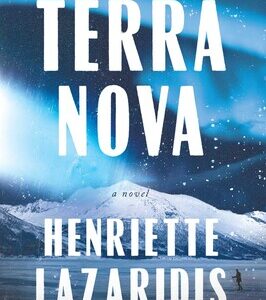-
“That’s the risk we take with language: it creates reality.” Jake Skeets on how language can be used to destroy and dominate, and how it can be used to remember and reclaim. | Lit Hub Criticism
Article continues after advertisement -
In the latest installment of When I’m Not Writing, Madeleine Watts reflects on how the trance of swimming lets her forget about writing. | Lit Hub
-
Retired professional cage fighter Jenny Liou on navigating the body (and regaining the fight) after birth. | Lit Hub Memoir
-
Jonathan Russell Clark considers Guillermo del Toro’s Pinocchio, a retelling rife with human frailty and historical darkness. | Lit Hub Film & TV
-
“Let’s tear down these monstrous warehouses of human misery and spend that money taking care of people instead.” Hugh Ryan on the urgency of prison abolition. | Lit Hub Politics
Article continues after advertisement -
Amanda Parrish Morgan on the work of caring for her students and children, “which inevitably means walking tentatively toward grief.” | Lit Hub Teaching
-
Jhumpa Lahiri on Alba de Céspedes’s Forbidden Notebook: “Forbidden evokes, to my English-speaking ear, the biblical fruit whose consumption leads to shame.” | The Paris Review
-
Evan Kindley considers the meaning of T.S. Eliot’s intense, passionate love letters to Emily Hale. | The New Republic
-
Max Lawton on touring America with Vladimir Sorokin: “On the way to the Brooklyn Book Festival panel Vladimir is speaking on, our Uber driver almost hits an old man.” | The Point
-
“In an effort to follow [Yiyun] Li’s advice, I resolve both to linger and to juggle more than one book.” Susie Mesure on the joy of reading slowly. | The Guardian
Article continues after advertisement -
“Literature is in peril because work, in America, has become totalitarian.” Patrick Nathan explores the numerous threats to American literary culture. | Entertainment, Weakly
-
Adrienne Westenfeld talks to Dr. Christopher Hilliard about the game-changing obscenity trial over Lady Chatterley’s Lover. | Esquire
-
“Wideman was once too late to produce a revolutionary literature; now he may be too early.” On the “ruthless books” of John Edgar Wideman. | NYRB
Also on Lit Hub: Lenore Anderson on the politically motivated focus on drug convictions • A poem by John Freeman • Read from Henriette Lazaridis’s latest novel, Terra Nova




















